In the fast-paced world of digital marketing, SEO (Search Engine Optimization) remains one of the most powerful tools for growing online visibility, attracting organic traffic, and building brand credibility. As search engines continue to evolve, understanding how SEO works and how to apply it effectively is essential for any business or individual who wants to succeed online. This blog dives deep into what SEO is, why it matters, and how you can implement the best strategies to stay ahead of the competition.
What Is SEO?
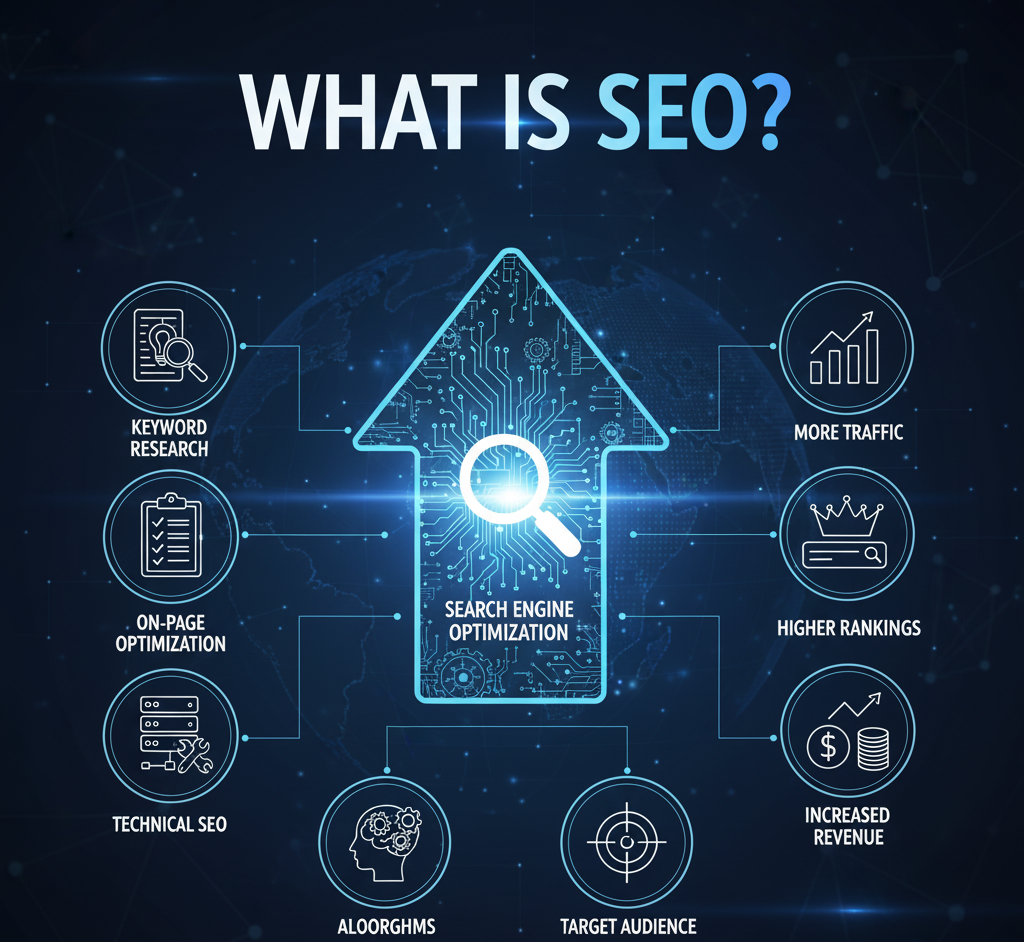
SEO is the practice of optimizing your website to make it more visible on search engines like Google, Bing, and Yahoo. When users search for something related to your business, strong SEO ensures your website appears higher in the search results. The better your SEO, the more likely clients will find you before they find your competitors.
SEO is not a one-time task; it is a long-term strategy involving continuous updates, improvements, audit, and analysis. Search engines constantly update their algorithms and policies, so businesses must adapt their SEO strategies to maintain high rankings.
Why SEO Still Matters
Despite all the changes in digital marketing, SEO continues to be one of the most cost-effective and reliable ways to grow an online presence. Here’s why SEO is still a crucial tool:
1. SEO Drives High-Quality Traffic
Unlike paid ads, where visibility stops the moment your budget ends, SEO brings traffic that is stable, targeted, and long-term. Users who arrive through search engines are often already interested in your product or service.
2. SEO Builds Trust and Credibility
Websites that rank high on Google are automatically perceived as trustworthy. Good SEO helps build domain authority, making your brand more credible in the eyes of customers.
3. SEO Helps You Stand Out in Competitive Markets
With so many businesses online, SEO gives you the competitive edge you need. Even small businesses can outrank large corporations by using smart SEO strategies.
4. SEO Supports All Other Marketing Efforts
From social media to content marketing and email campaigns, every digital marketing strategy benefits from good SEO. When your website is optimized, every marketing channel performs better.
Types of SEO You Need to Know
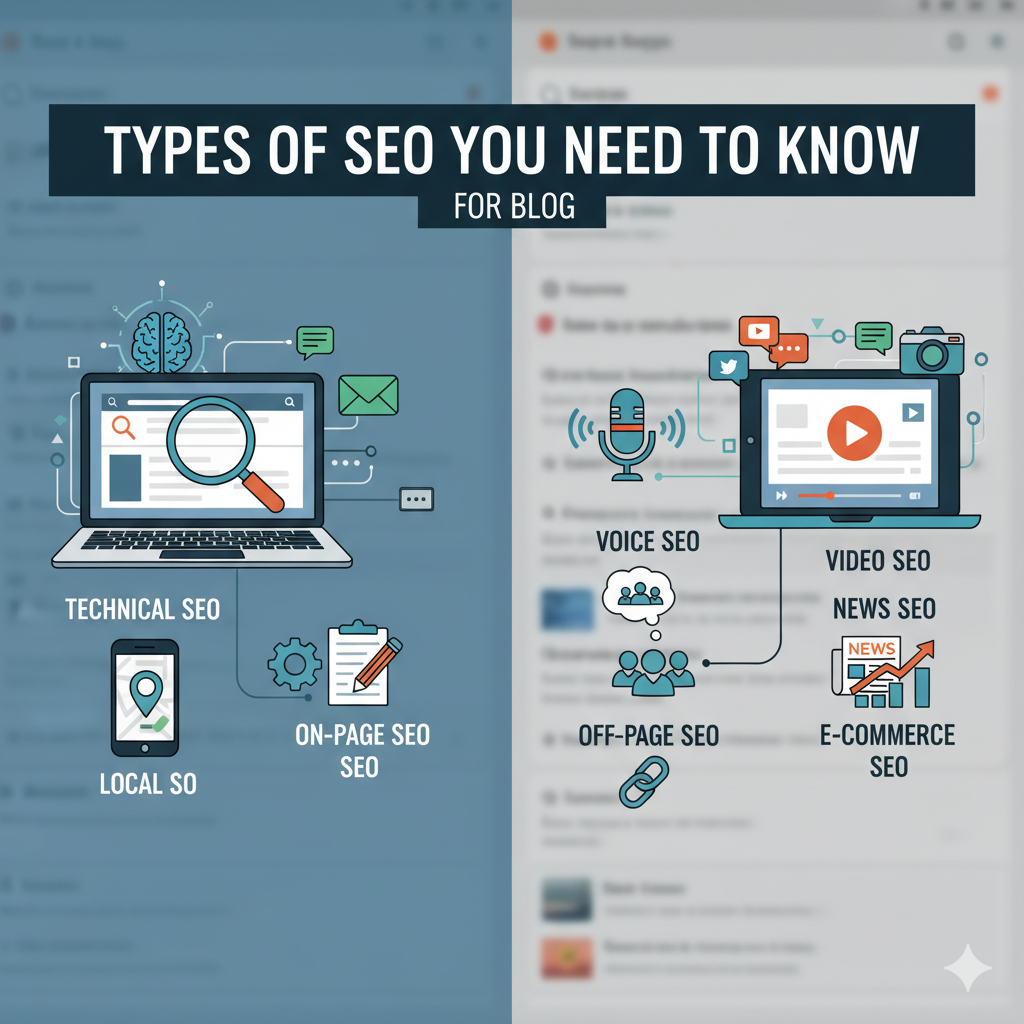
To build a strong SEO strategy, you first need to understand the different types of SEO and how they work together.
1. On-Page SEO
This focuses on everything on your website that you can control, including:
- Keywords
- Content quality
- Title tags and meta descriptions
- Internal linking
- Image optimization
On-page SEO is essential because it helps search engines understand what your content is about.
2. Off-Page SEO
Off-page SEO refers to actions taken outside your website to improve ranking:
- Backlinks
- Social signals
- Mentions on other websites
- Brand reputation
Backlinks from high-authority sites are one of the strongest ranking signals for Google.
3. Technical SEO
Technical SEO ensures your website can be easily crawled and indexed by search engines. It includes:
- Website speed
- Mobile optimization
- Secure HTTPS connection
- Sitemap and robots.txt
- Fixing broken links
Without technical SEO, even the best content won’t rank well.
4. Local SEO
For businesses targeting a specific region, local SEO is essential. It includes:
- Google Business Profile optimization
- Local citations
- Local keywords
- Customer reviews
Local SEO helps your business appear in Google Maps and local search results.
The Role of Keywords in SEO
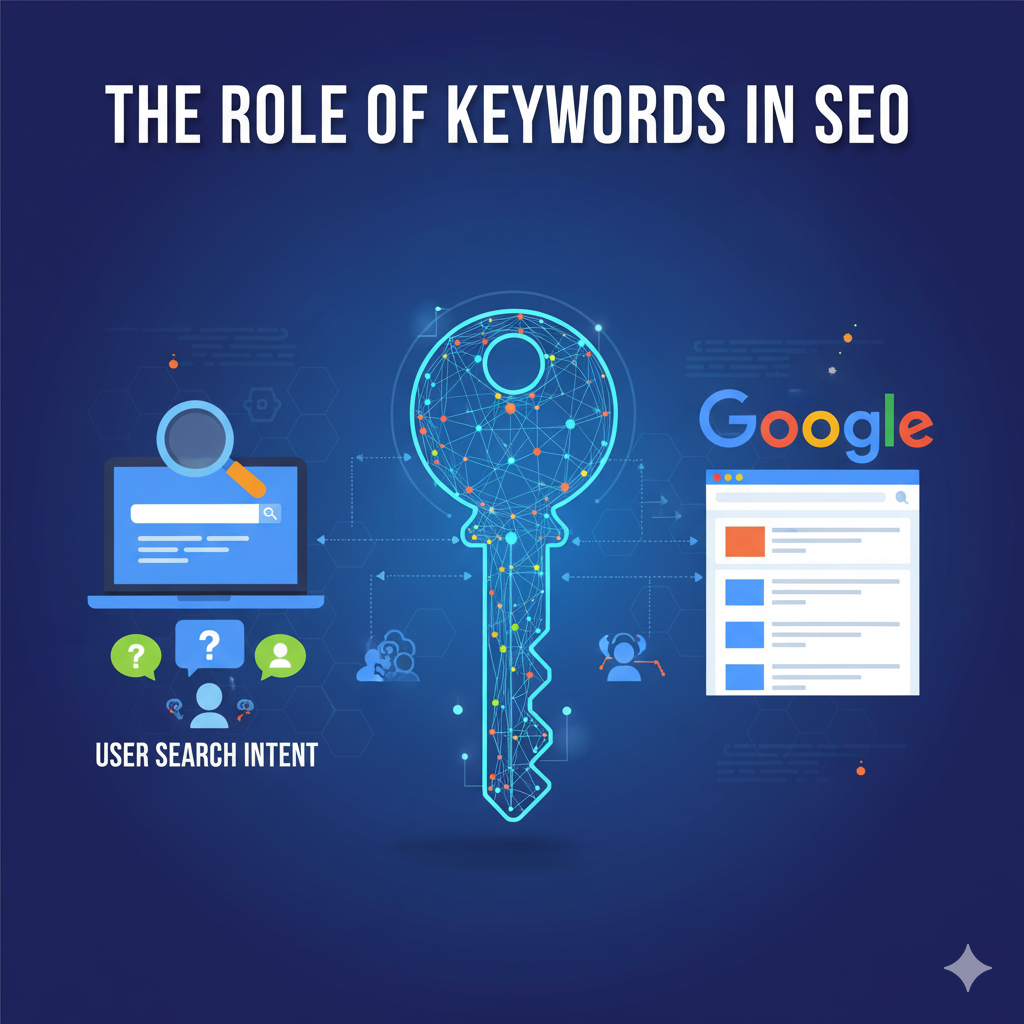
Keywords are the foundation of every SEO strategy. They signal to search engines what your content is about and help match it to user searches. Effective SEO requires:
- Keyword research
- Keyword placement
- Keyword variation (LSI keywords)
- Avoiding keyword stuffing
Search engines focus more on search intent than only exact keywords. So while including the keyword “SEO” is important, creating meaningful content that answers user questions is even more valuable.
How to Build an Effective SEO Strategy
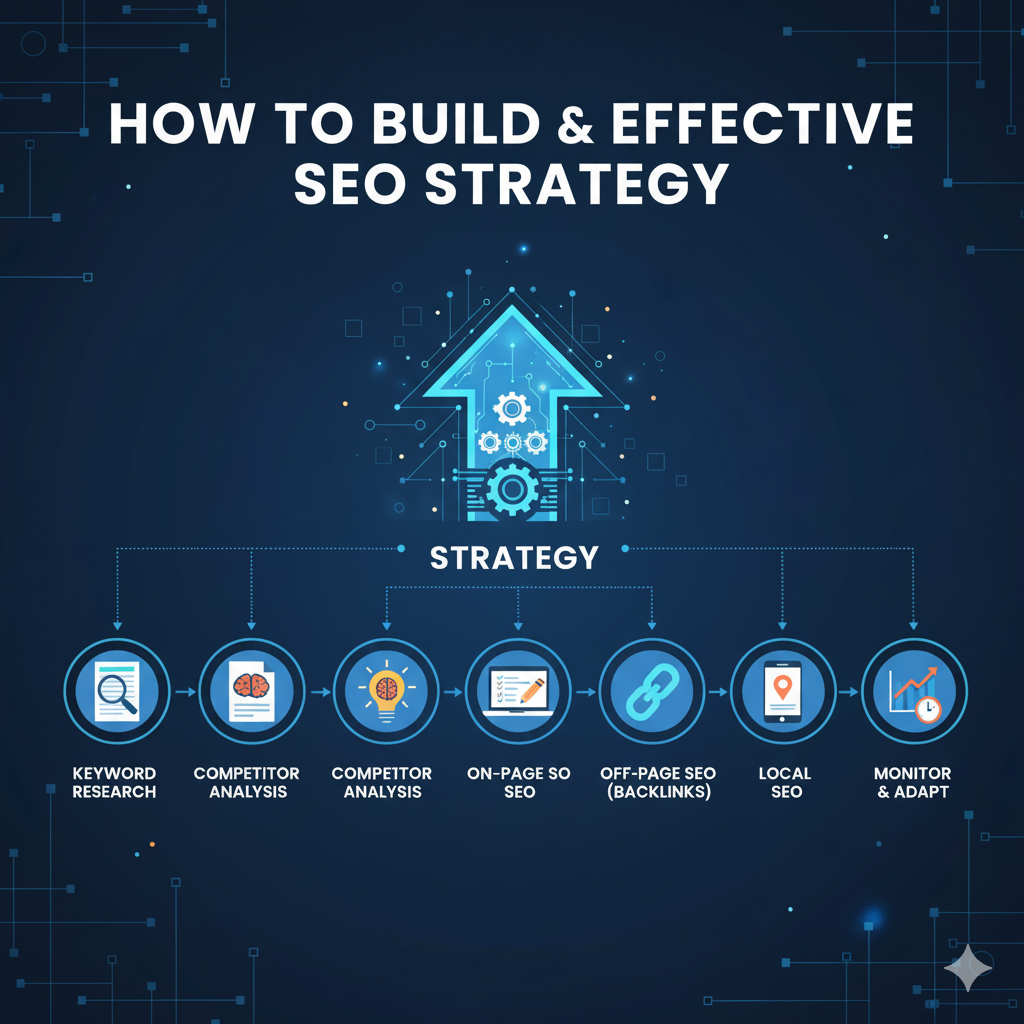
If you want your website to rank higher and attract more organic traffic, follow these essential SEO steps:
1. Start with Keyword Research
Use tools like:
- Google Keyword Planner
- Ahrefs
- SEMrush
- Ubersuggest
Choose keywords that have high search volume but medium to low competition. Long-tail keywords are also extremely effective for beginners.
2. Create High-Quality, Valuable Content
Content is still the heart of SEO. To rank well, focus on:
- Solving user problems
- Providing original, helpful information
- Using simple and clear language
- Adding visuals like images or videos
Search engines reward content that keeps users engaged.
3. Optimize Your On-Page SEO
Make sure to:
- Use your main keyword in the title
- Add it to the first 100 words
- Use headings (H1, H2, H3)
- Optimize images with alt text
- Include internal links
- Write a compelling meta description
These small steps significantly improve your SEO performance.
4. Build Strong Backlinks
The more authoritative websites link to your content, the higher your site ranks. You can get backlinks by:
- Guest posting
- Creating shareable content
- Collaborating with influencers
- Submitting your site to directories
Quality > quantity when it comes to backlinks.
5. Improve User Experience (UX)
Search engines reward websites that offer a smooth user experience. Make sure your website is:
- Fast loading
- Mobile-friendly
- Easy to navigate
- Free of unnecessary pop-ups
Good UX reduces bounce rate and increases ranking.
6. Track and Analyze Your SEO Performance
Use tools like:
- Google Analytics
- Google Search Console
These tools help you understand:
- Which keywords are performing
- Which pages need improvement
- What users are searching for
Regular analysis helps you update your SEO strategy effectively.
Future of SEO and Beyond
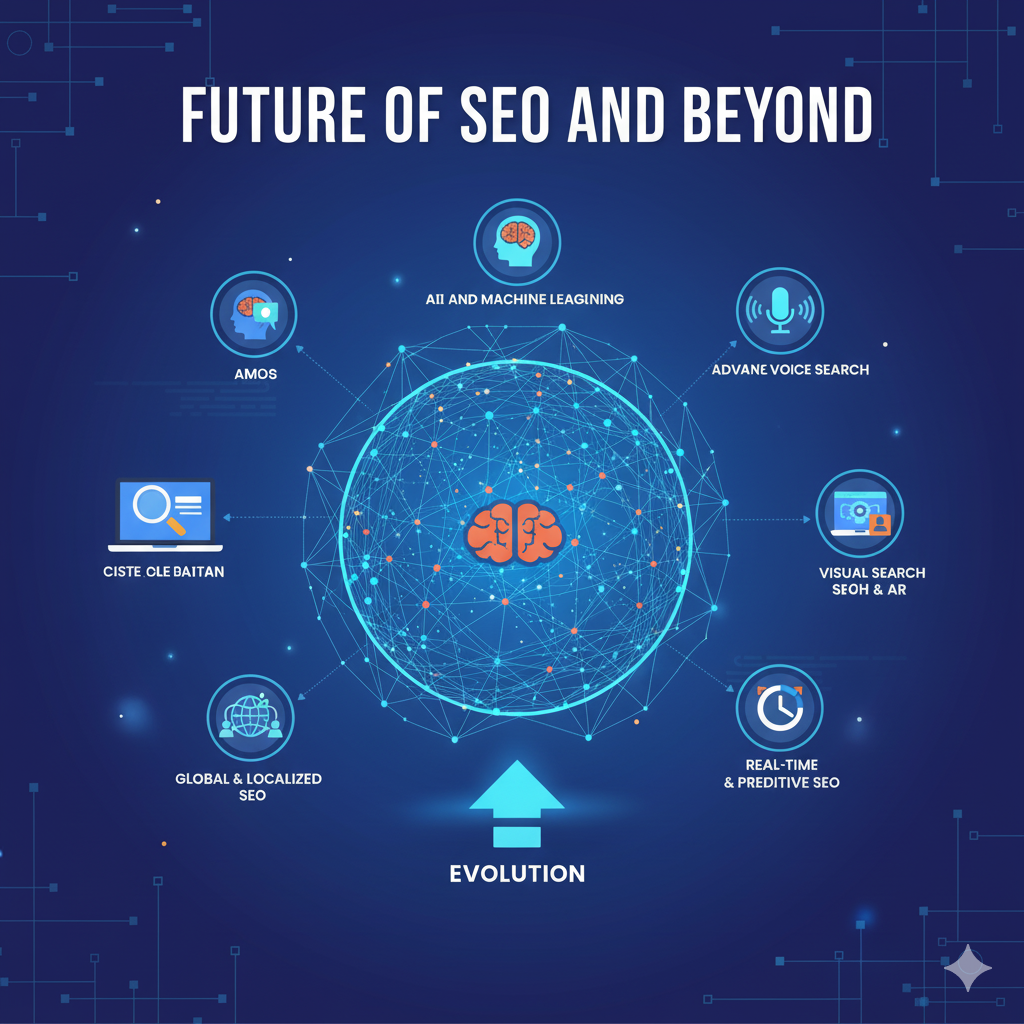
SEO will continue evolving, especially with technologies like AI, voice search, and machine learning. Here are the biggest SEO trends to watch:
1. AI-Driven Search Results
Google’s AI systems analyze content deeply, so quality and relevance matter more than ever.
2. Voice Search Optimization
People are using voice assistants more, so conversational keywords will become important.
3. User Intent > Keywords
Google now prioritizes user satisfaction over keyword density.
4. Video SEO
YouTube optimization is becoming critical as video content continues to dominate.
Conclusion
SEO remains one of the most reliable and cost-effective digital marketing strategies in 2025. Whether you’re a small business owner, content creator, or digital marketer, understanding SEO can drastically transform your online success. By focusing on high-quality content, technical optimization, and smart keyword strategies, you can build long-term visibility and attract a steady flow of organic traffic.
FOR MORE INFO- PICKXIO
READ MORE ABOUT IT – THEDIGITALARROWS
No responses yet